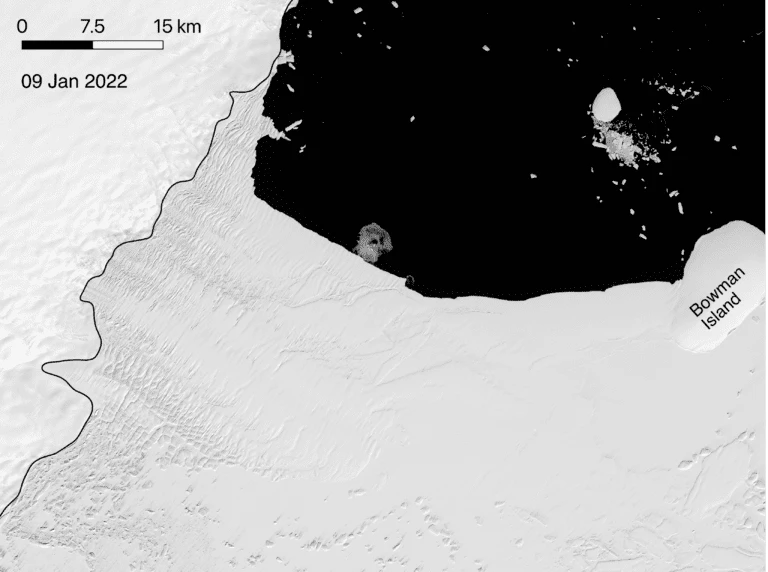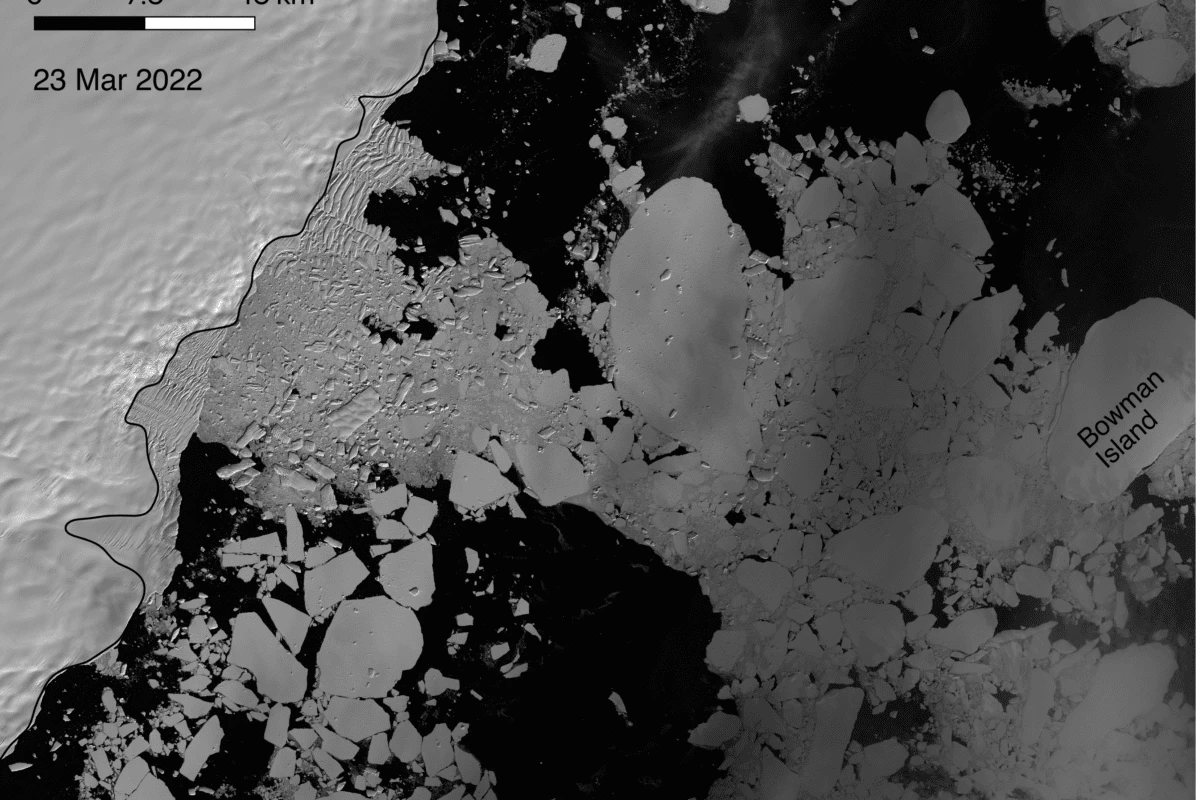In the same week that record-setting temperatures were logged in East Antarctica, satellite images have revealed the complete collapse of its Conger Ice shelf, a first for the region. The ice shelf isn't all that big in the grand scheme of things, but its demise was uncharacteristic in a place known to be the highest and coldest on Earth.
The heatwave to strike East Antarctica last week saw the mercury rise as high as -11.8 °C (10.76 °F) at the Italian-French operated Concordia research station on March 18, the highest on record for any month of the year. These temperatures were around 40 °C (72 °F) above the average for March, with scientists attributing to them to "atmospheric rivers" that trapped heat over the region.
Meanwhile, satellite images show that around March 15, the Conger Ice shelf which covers 1,200 square km (463 square miles) and is around the size of Manhattan, completely collapsed. For context, the Larsen B Ice Shelf on the Antarctica Peninsula measured 3,250 square kilometers (1,250 square miles), until it collapsed over the course of month in 2012.

It might be small by comparison, but the Conger Ice Shelf's collapse is not insignificant as these events tend to take place in West Antarctica, with East Antarctica generally thought of as stable. Indeed, although it had been retreating since January 2020, this is the first time an ice shelf collapse has been observed in the region and was completely unpredicted, according to researchers at the Woods Hole Oceanographic Institution.
“Although the Conger ice shelf was relatively small, it is one of the most significant collapse events anywhere in Antarctica since the early 2000s when the Larsen B ice shelf disintegrated, and is most likely, a sign of what might be coming,” said Catherine Walker, a glaciologist at the Woods Hole Oceanographic Institution.




